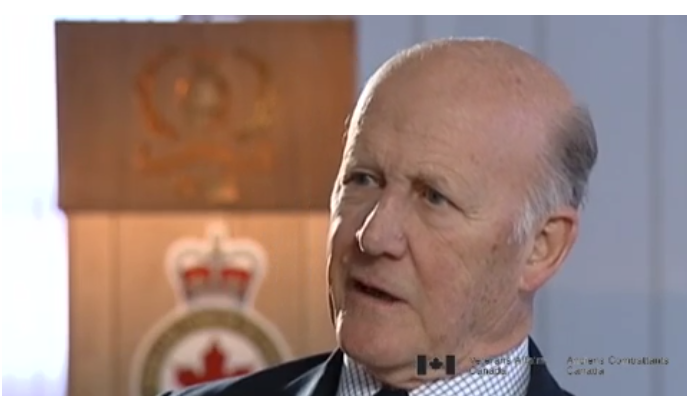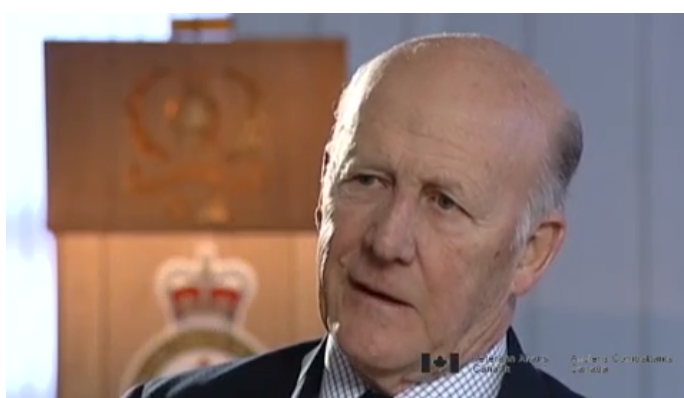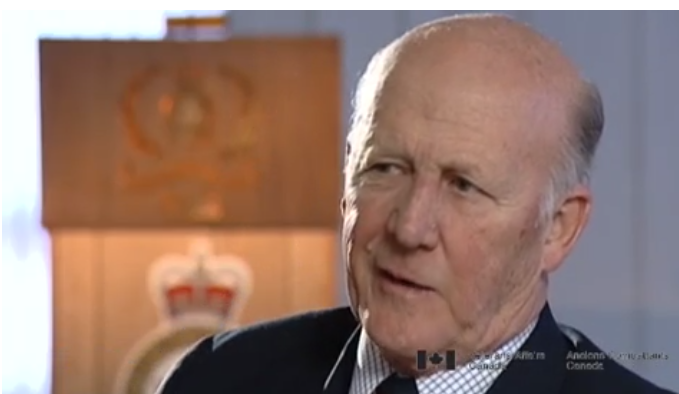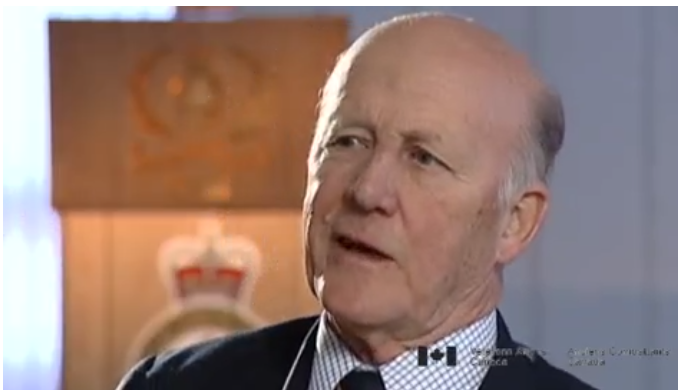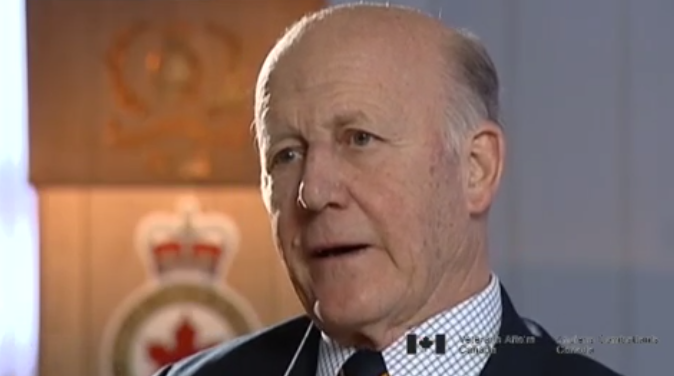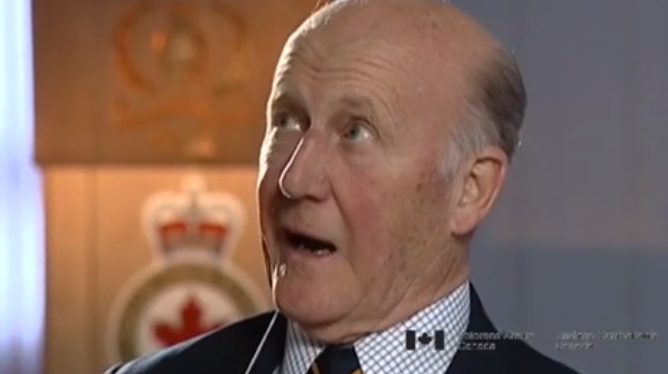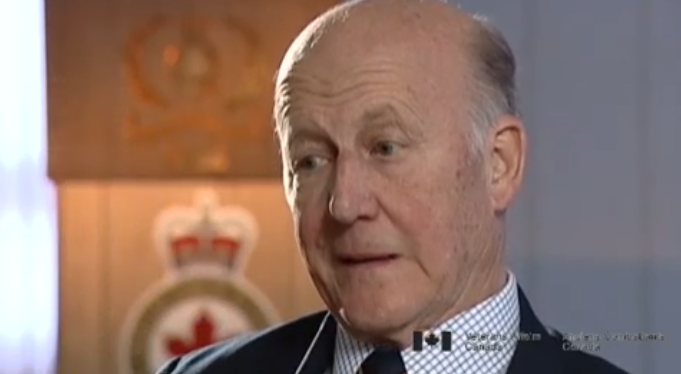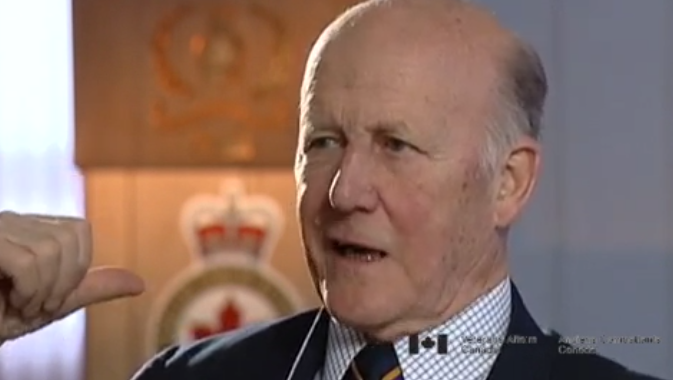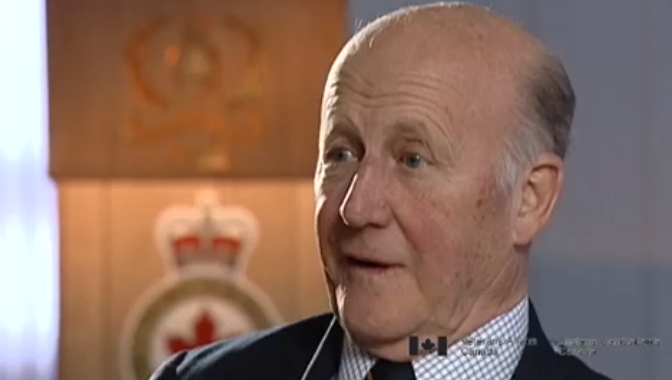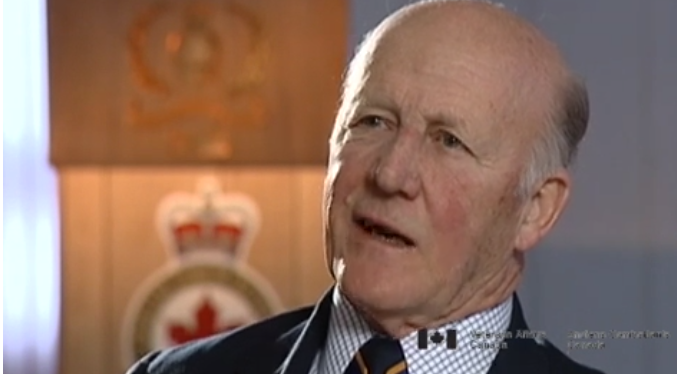Having chosen the infantry, you know, the ordinary foot soldiers,
and having seen a few videos of what they did, we found this
exciting because it was very physical and for a lot of us,
physical was part of it. And, so, I went into the infantry and
the first summer, basically, you just do basic training, the same
as a simple, as a soldier would do, about 12, 13 weeks of basic
training, starting from scratch as if you’d never seen a rifle in
your life, or you’d never seen a gun. You never, you never heard
a word of command, you’ve never marched any military format
except chasing troops marching beside our houses. We would march
beside them. But other than that there, there was a . . .
So, that was the first summer. Some of it was specifically
designed, I think, to almost drive you to, not to breaking point
but to see how tough you really were. And a lot of people just
may have had a different idea of being tough and turned around
and just shouted back or, or said, “I’ll have nothing to do with
this kind of things. I won’t be . . .” or they considered it
abuse and they just didn’t last. So I guess, theoretically, what
this means, you gotta be able to take it in order to give it
later. I was going to be an infantry officer, so then you get in
very much more in the leadership bit and what we called “mutual
instruction.” We all take our turn at the helm and protect each
other to a certain extent, you know, because we know that
tomorrow, if I’m not supporting this guy that’s the boss today,
tomorrow will be my turn to probably be given the, you know,
the short end of the stick. So, in fact . . . very . . .
in retrospect, I think of this as part of the socialization which
is so necessary in the military. I mean, it’s a different kind of
life, and it’s not a job. It’s not a 24/7. You live it
twenty-four hours a day, seven days a week. And you, and you live
it permanently, even socially. You’re with soldiers all the time,
or you’re in a canteen, you’re in a mess. So all of this is part
of the upbringing, and we did that in a big way. And the first
year I did it was in Québec City, the Citadel, which
interestingly enough many years later, I got to command.
But, and then using as a training base, of course, was Valcartier
which was the area that was the closest. The second year we went
into Borden where the school of infantry was, north of Toronto.
For some of us, this was the first time we ever went beyond,
you know, the Ontario border. And, so, weekends at Meaford and
weekends in Wasaga Beach and little trips down to London and to
Toronto was all new, particularly for Quebecers, who were still
working on our language skills, so. Then the third year, you were
assigned to the unit that you were likely to be commissioned in.
So, in my case, having joined a Special Force and having insisted
that my only purpose was to go to Korea. As it turned out, I
joined my unit for what we called a phase three which was really
like on-job employment at that stage. You were employed as a
young officer with a training and recruit platoon, I was.
And at the end of this, if you’ve earned your shoulder pip that
we used to wear, then you took off the little white band-aid that
was around it, and you were a 2nd lieutenant or a lieutenant.
And that was really, basically it. And at that stage,the roles
were automatically reversed. You started to train 45, 50
men through the same sort of things that you’d been through.



